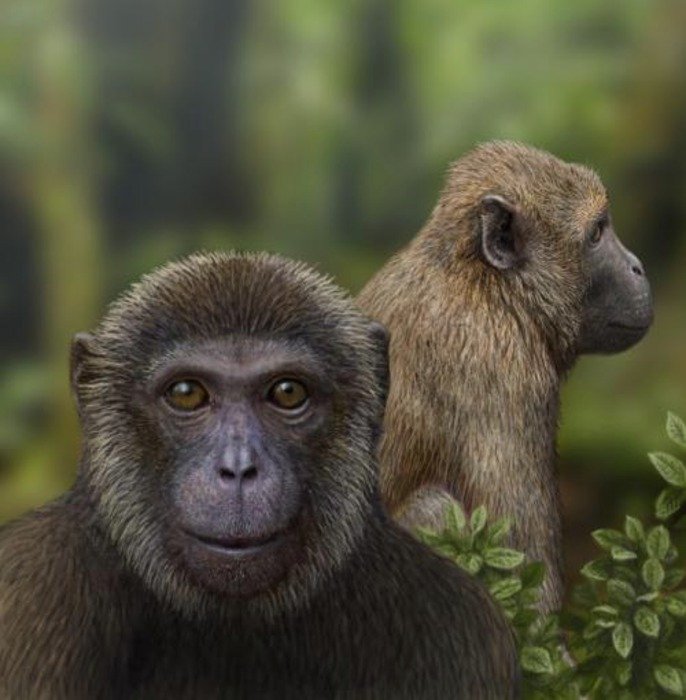Two fossil discoveries from the East African Rift reveal new information about the evolution of primates. Artist's impression of the newly discovered fossil primates, Rukwapithecus (front, center) and Nsungwepithecus (right). Credit: Mauricio Anton/Ohio University
ATHENS, Ohio, May 15 (UPI) -- Two fossil discoveries in Africa are the oldest evidence yet found of the evolutionary split between Old World monkeys and apes, researchers say.
Scientists in a study led by researchers from Ohio University said the finds from the East African Rift provide new insights into the evolution of primates.
The fossils are the oldest yet found of two major groups of primates: the group that today includes apes and humans, classed as hominoids, and the group that includes Old World monkeys such as baboons and macaques, known as cercopithecoids.
At 25 million years old, the finds are significantly older than fossils previously documented for either of the two groups, the researchers said.
Both primates, collected from a single fossil site in the Rukwa Rift Basin of Tanzania, are new to science; Rukwapithecus fleaglei is an early hominoid represented by a mandible preserving several teeth, while Nsungwepithecus gunnelli is an early cercopithecoid represented by a tooth and jaw fragment.
The primates lived during the Oligocene epoch, from 34 to 23 million years ago, and the fossils suggest the two lineages were already evolving separately during this geological period.
"The late Oligocene is among the least sampled intervals in primate evolutionary history, and the Rukwa field area provides a first glimpse of the animals that were alive at that time from Africa south of the equator," paleontology Professor Nancy Stevens said in an Ohio University release.
Prior to these discoveries the oldest fossil remains of the hominoid and cercopithecoid lineages were recorded from the early Miocene, at sites dating millions of years younger, the researchers said.















